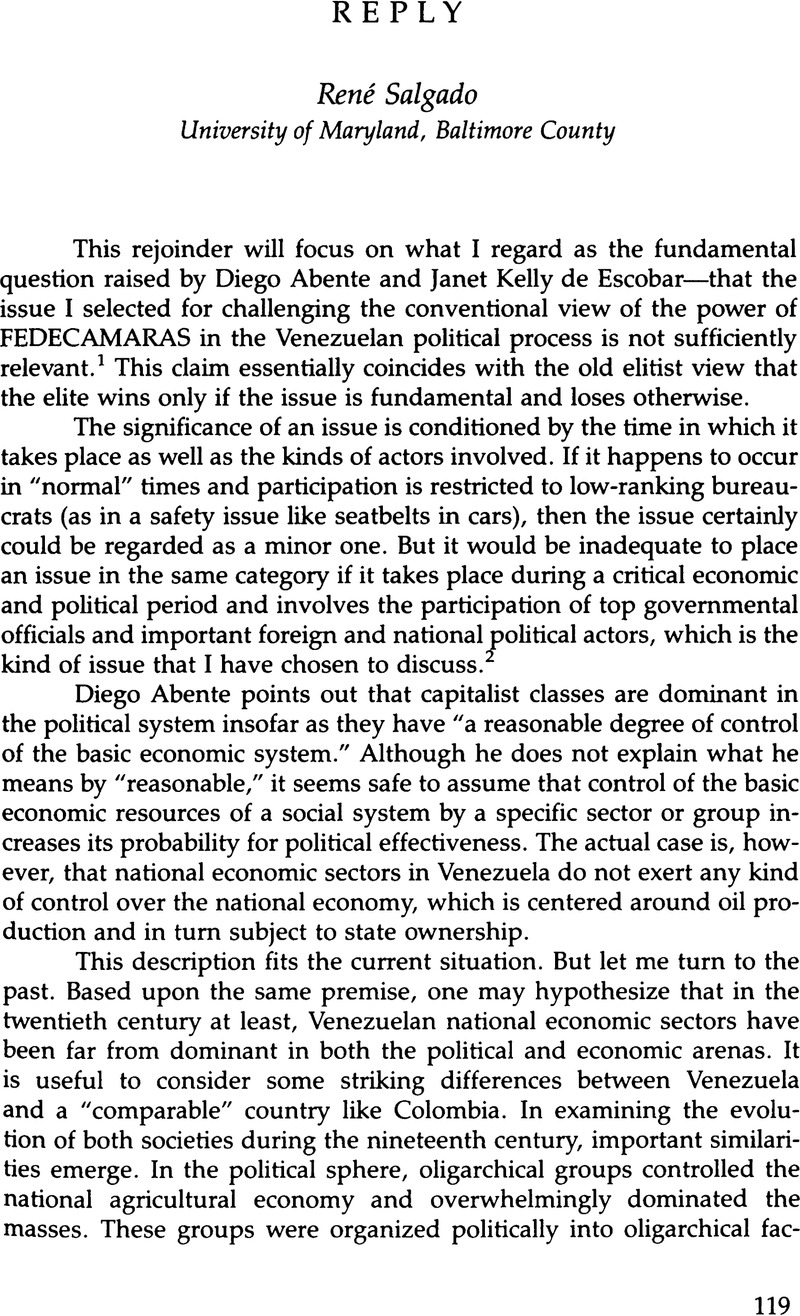No CrossRef data available.
Article contents
Reply
Published online by Cambridge University Press: 12 October 2022
Abstract

- Type
- Commentary and Debate
- Information
- Copyright
- Copyright © 1987 by the University of Texas Press
References
Notes
1. I will not deal with Robert Bond's interesting viewpoints because they generally do not contradict my conclusions. But I am skeptical about his assertion that the motive of FEDECAMARAS leaders in campaigning for the PDR was purely “to breathe new life” into what he now regards as “a moribund organization.”
2. I was not concerned about possible impacts of government policy on the profits and welfare of Venezuelan socioeconomic elites in general, or of FEDECAMARAS members or enterprises in particular. For instance, it was not my purpose to measure whether or not FEDECAMARAS enterprises will experience less profits—or more losses—particularly after 17 July 1986, when President Lusinchi announced that his government would not grant the PDR for repaying the principal of private debts after all. Thus Abente's hypothesis that there were no negative outcomes for any unsuccessful petitionersa is plausible. But gross figures on foreign currency flight from Venezuela to international banks alone do not prove the point he is trying to make.
3. Unlike events in Mexico, church and land issues typical of nineteenth-century Latin America did not generate deep cleavages between liberals and conservatives in either Colombia or Venezuela.
4. It is not by chance that no nineteenth-century political names recur in twentieth-century Venezuelan history. The Monagas, Urbanejas, and Guzmanes of Venezuela are past history, which cannot be said of the Ospinas and Restrepos in Colombia. For an interesting account of the impact of the Gómez dictatorship on Venezuela's political development at the end of the century, see R. J. Velásquez, La caída del liberalismo amarillo (Caracas: Editorial Bloque de Armas, 1986).
5. This argument would be like claiming that the working class possesses strong influence in a given society because a few key ministers have working-class backgrounds. Perhaps all that can be hypothezised from the fact mentioned by Kelly de Escobar is that specific economic groups have a higher probability of becoming more influential on specific issues at specific times. Yet to relate the firings of Díaz Bruzual and Luis Matos to the power of FEDECAMARAS is very speculative.
6. Despite the scandalous bankruptcies of the Banco Nacional de Descuento and the Banco de Comercio that negatively affected the wider public, key economic groups seem to have been relatively successful in preventing stronger regulations of banking activities during the last two years. As far as I know, however, no research has been conducted in this area.




